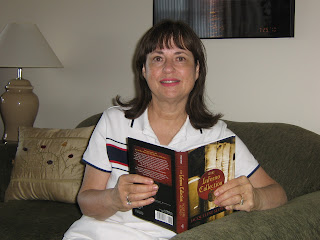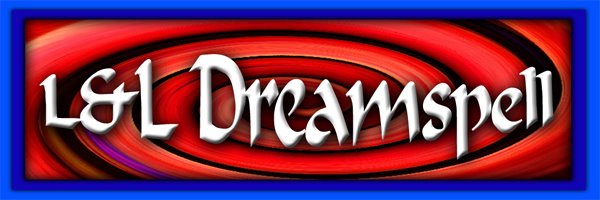 How to Originate Ideas for Writing
How to Originate Ideas for WritingBy Jacqueline Seewald
I am often asked this question by readers: where do you get the ideas for your novels? I answer this question by saying I don’t just sit at my computer all day and pull ideas out of thin air. The ideas originate from living life as fully as possible. I am interested in the people and places around me. I pay attention. I observe with all of my senses. Reality gets mixed with imagination in my writing.
Writers are people, many of whom live interesting and unusual lives. Some of us tend to find the unusual in the ordinary. It all plays a part in what writers ultimately designate as “fiction.”
I am also a voracious reader as are many other authors. I read a great variety of books, magazines and newspapers. I read both fiction and nonfiction. Reading stirs imagination.
So what typically inspires a novel? What sparks a book series? With the Kim Reynolds librarian sleuth series (THE INFERNO COLLECTION, THE DROWNING POOL, THE TRUTH SLEUTH) the idea started with a lecture given at a symposium for grad students in the library science program at Rutgers University. A Princeton professor/librarian was lecturing on the subject of inferno collections. I was totally fascinated and decided to do some research on the subject on my own. I thought this would be an interesting frame for a mystery novel. THE INFERNO COLLECTION, initially published in hardcover and then large print, was the result. The novel is available in libraries all over the world, also available in all e-book formats: Kindle, Nook, Kobo, Overdrive, etc. http://www.lldreamspell.com/JacquelineSeewald.htm

When a reader/reviewer of the novel asked if inferno collections actually exist, I responded that not only did they exist in the past but still exist in more sophisticated and subtle forms today.
I am not saying that we should anticipate a burning of the vanities as with Savonarola's followers in the past, nor do I believe as in Ray Bradbury's Fahrenheit 451, that the firemen of the future will feel compelled to burn and destroy books.
It is a fact, however, that librarians have viewed themselves as gatekeepers. For example, libraries such as Boston Public at one time found it necessary to maintain separate inferno collections of banned books considered inappropriate for general public display and reading. Often these were books deemed salacious such as James Joyce’s Ulysses.
Did narrow attitudes end with the Victorian era’s sensibilities and prejudices? Apparently not. In the 1950’s, Senator Joseph McCarthy instigated one of the most notorious waves of censorship the nation has ever experienced. Because of McCarthy’s ‘Red Scare’, classics like Henry David Thoreau’s Civil Disobedience, which encouraged men to peacefully protest unjust laws, was pulled from the shelves of the State Department’s overseas libraries. It was one of more than 300 titles McCarthy had banned or burned.
J.D. Salinger's 1951 classic coming-of-age novel, The Catcher in the Rye, has been the object of challenges nationwide for decades because of its language, references to violence and sexual content. According to the American Library Association, the book was the 13th most frequently challenged book in the country's school systems from 1990 to 2000.
In 2005, the Metropolitan Library Commission of Oklahoma City overruled recommendations made by library staff and established a special collection of children’s books with gay themes. The collection would be accessible only to adults. The Oklahoma debate began when a state representative worried that children would have access to books about gay marriage and sponsored a resolution to segregate all library books with gay and/or adult themes.
The list of “condemned,” banned or censored books boggles the mind. It is not only governments and libraries that have chosen to ban books found objectionable for various reasons. Materials are often deemed unacceptable for political or religious reasons or are considered profane, pornographic or sexually too explicit for youth. Publishers and booksellers make these decisions and determinations as well. The advent of e-book self-publishing has tipped the balance in that regard.
It is well to keep in mind that good books often stir controversy. They are designed to question and make people think. That is not something to fear or repress but rather to admire and respect. As Voltaire, author of the banned satire Candide, once stated: “I do not agree with what you have to say, but I'll defend to the death your right to say it.”
Today the internet is a largely unrestricted location to find information, including the subject of banned book collections. As to inferno collections, are they a thing of the past? Knowing human nature, it’s doubtful.
As a reader and/or writer, what trends do you find interesting in publishing? Do you see banned books as a thing of the past? What ideas or information inspire you to write?
What do you enjoy reading? Your thoughts and opinions valued here in this forum for open discussion!
 Note: To celebrate the February 2012 large print edition of THE TRUTH SLEUTH from Kennebec, division of Thorndike Press, as well as the February 2012 paperback edition of THE DROWNING POOL from Harlequin Worldwide Mystery, I am offering a paperback copy of The Drowning Pool to a commenter. Leave an e-mail or web address if interested. Winner will be drawn at random and announced next week here at Author Expressions.
Note: To celebrate the February 2012 large print edition of THE TRUTH SLEUTH from Kennebec, division of Thorndike Press, as well as the February 2012 paperback edition of THE DROWNING POOL from Harlequin Worldwide Mystery, I am offering a paperback copy of The Drowning Pool to a commenter. Leave an e-mail or web address if interested. Winner will be drawn at random and announced next week here at Author Expressions. 







